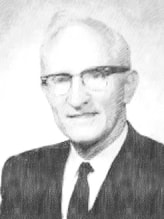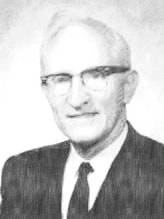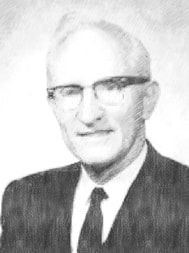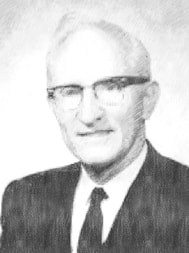U - Past Witnesses
- Merrill F Unger -
Merrill f unger

Merrill Frederick Unger (1909–1980) was an American Bible commentator, scholar, archaeologist, and theologian. He earned his A.B. and Ph.D. degrees at Johns Hopkins University, and his Th.M and Th.D degrees at Dallas Theological Seminary. He was a prolific writer who authored some 40 books. Unger was also a well known Biblical archaeologist and encyclopedist. Early in his career he was identified as a Baptist, but later was credentialed by the Independent Fundamentalist Churches of America (IFCA).
 Merrill F Unger Files
Merrill F Unger Files
No matter what the length of the portion explained may be, if it is handled in such a way that its real and essential meaning as it existed in the mind of the biblical writer and as it exists in the light of the overall context of Scripture is made plain and applied to the present-day needs of the hearers, it may be properly said to be expository preaching. It is emphatically not preaching about the Bible, but preaching the Bible. “What saith the Lord” is the alpha and omega of expository preaching. It begins in the Bible and ends in the Bible and all that intervenes springs from the Bible. In other words, expository preaching is Bible-centered preaching
--Merrill F Unger; Principals of Expository Preaching; 1955
--Merrill F Unger; Principals of Expository Preaching; 1955
 Merrill F Unger Files
Merrill F Unger Files
Demon influence may occur in different degrees of severity and in a variety of forms, both in Christian and non-Christians. In its less severe pressure, suggestion, and temptation. When such pressure, suggestion and temptation are yielded to, the result is always an increased degree of demon influence. Although the human race fell in Adam and became prey to Satan and demons, the forces of darkness have always been severely restricted. They can enslave and oppress fallen man only to the degree he willingly violates the eternal moral law of God and exposes himself to evil.
--Merrill F Unger; Demons in the World Today; 1971
--Merrill F Unger; Demons in the World Today; 1971
 Merrill F Unger Files
Merrill F Unger Files
“privileges with reference to the performance of special services. Thus the Jews were “a chosen nation,” “the elect.” Thus also in the NT, bodies of Christian people, or churches, are called “the elect.” (2) To the divine choice of individuals to a particular office or work. Thus Cyrus was elected of God to bring about the rebuilding of the Temple, and thus the twelve were chosen to be apostles and Paul to be the apostle to the Gentiles. (3) To the divine choice of individuals to be the children of God, and therefore heirs of heaven. It is with regard to election in this third sense that theological controversies have been frequent and at times most fierce. Calvinists hold that the election of individuals to salvation is absolute, unconditional, by virtue of an eternal divine decree. Arminians regard election as conditional upon repentance and faith; the decree of God is that all who truly repent of their sins and believe on the Lord Jesus Christ shall be saved. But every responsible person determines for himself whether or not he will repent and believe. Sufficient grace is bestowed upon everyone to enable him to make the right decision.” ― Merrill F. Unger, The New Unger's Bible Dictionary

